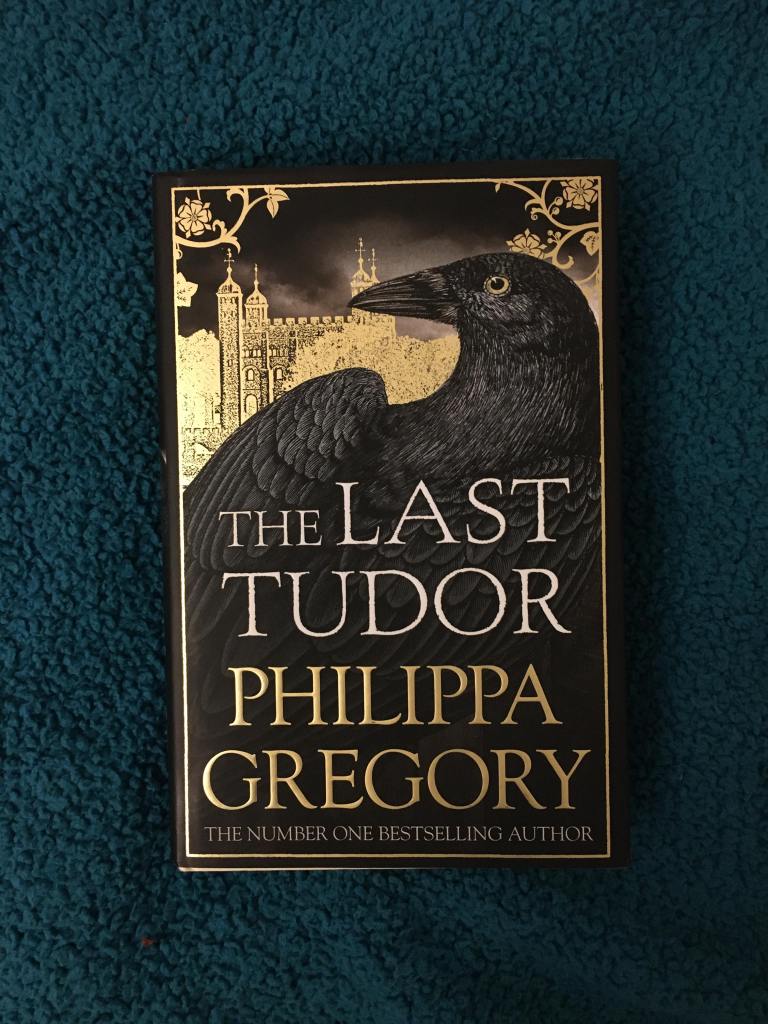

This book. This bloody book.
Where do I begin? I was going to sit down and collate all the pictures I took of especially egregious prose and dialogue and type them up, and perhaps divide the review into three sections, one for each ‘book’ these 513 pages are split into. But that’s far more effort than this waste of paper and ink deserves. Trees died for this, and I’m furious. I finished this book yesterday afternoon, and I was so frustrated with it that I had to step away from the computer and go for a walk to calm down before I could come back and try and collect my thoughts into a semi-coherent review instead of an unfiltered rant.
Let me preface this review by saying I have always hated Philippa Gregory’s work, and I knew I wasn’t going to like this book. I just didn’t realise how much I was going to dislike it. I’ve always hated her work, you see, without having read any of it – a cardinal sin, I know. But the fact her ‘historical fiction’ consists of deliberately misinterpreted facts and indulgence in speculation and rumours put me off ever reading any of her books – I watched The White Queen purely because it’s based on one of my favourite historical periods, and that infuriated me enough. Witchcraft, pitting women against each other while claiming to be feminist, anachronistic nicknames the better to tell the difference between characters with the same name because she writes everyone the same way – I could go on, but if I try and review that series as well my head will explode.

Ellis actually challenged me to read this book years ago – two years, I think. I kept putting it off and finally, Friday 13th 2020, I’m not even superstitious but, just in case, I thought ‘if I start it now, that’ll be the worst thing that happens to me today’ – and boy, was I right. Forgive me if this review isn’t as well structured or eloquent as my other reviews, but honestly I need to get this all off my chest and then never think of this book again.
If my fury seems exaggerated to you, allow me to explain.
I had to put the book down on page six – page six – to consider whether I could actually go through with it and read the damn thing. The book consists of the stories of the Grey sisters – Jane Grey, infamously ‘Queen for Nine Days’, and her lesser known sisters, Katherine and Mary. Clearly, as they are the protagonists, we are supposed to sympathise with them. But when Jane, on page six, says that Elizabeth (later Elizabeth I) was ‘tickling and romping’ with Katherine Parr’s husband – I’ll talk more about how this book treats Elizabeth in a bit, trust me – when she treats this rumour as stone cold fact, and talks about it with such self righteous glee despite claiming ‘I do not judge’… I wasn’t even ten pages in, and I disliked her immensely. Jane was not only full of herself and holier-than-thou, constantly banging on about how she was better than everyone as they’re all ‘so very stupid’, but she was also possessed of ‘dainty prettiness’ unlike the ‘stout’ Princess Elizabeth (?!), and ‘the most learned young person in the country’, so much so that her own father ‘fear[ed] [her] eloquence’. Her sisters were no better – judgemental, egotistical and selfish – and I don’t differentiate between them as I couldn’t tell their voices apart. The only difference between the three was Jane’s slavish devotion to the reformed religion – to the extent that when she was in the Tower, facing execution, she wished Katherine would leave her alone and refused to speak to her so she could pray.
I didn’t care for, or sympathise with, any of them – especially when none of them seemed to care for or sympathise with each other. Then there’s their treatment of Elizabeth, with Katherine especially acting as though everything the Queen did was to spite her personally. All three of them went on and on about how they were ‘of the blood royal’, with Mary once even whining ‘I cannot live like this’ when confined to a small room with hardly any room for her maid to serve her, the horror! – would she rather have been in the Tower? – but Katherine, especially, kept insisting she was far more regal than Elizabeth and, of course, more beautiful. She, her sisters, and Gregory herself continually refer to Elizabeth as a whore – ‘I think that if she were not a queen she would certainly be a whore’ – and it’s very clear that Gregory has a problem with her as a historical figure and is using her novels to indulge in petulant mud-slinging.
Unlikeable protagonists, historical inaccuracies, bias… what else could go wrong? How about the pacing? Jane’s story – the most well known, and arguably the most exciting – was crammed into just over a hundred pages. Katherine’s book was the longest and felt as though it went on forever – she was in favour, then she wasn’t, in favour, then she wasn’t – eventually ending up imprisoned for marrying without the Queen’s permission, like a complete idiot. Then Mary goes and does the same thing in her book, and both constantly whine and complain and whinge and cry and protest they only married for love and did nothing wrong… You married without the Queen’s permission! If you weren’t a piece of wet cardboard stuffed into a kirtle transported to the 16th century from the 21st, you would understand the importance of doing that, you absolutely insufferable morons!!
… Excuse me.

The pacing was dreadful not only due to some events being rushed, and others described with all the dry detail of a Wikipedia article, but also due to how dull and repetitive the book was. There were so many instances of characters stating the obvious because Gregory doesn’t trust the reader – “Jane, the king, my cousin, is dead” and “My husband? My Thomas, Thomas Keyes? The queen’s sergeant porter, the biggest man at court? Who married me?” being some of the most egregious, and hilarious, examples – which made the writing not only clunky as hell, but so heavy on the exposition and info-dumping that I quickly lost track of who was who, though frankly I didn’t care much in the first place. People do not talk like this – they didn’t talk like this even in the 1500s. The dialogue was awful, the characters not even worthy to be called two dimensional, the events of the book were repetitive and poorly paced – but overall, the worst sin this book committed, was that it was so. bloody. boring. I wouldn’t be exaggerating if I told you I almost nodded off trying to read it. Katherine’s section alone should have been cut by two hundred pages but, even if the whole book had been trimmed to a much more reasonable length, it still would have been dull as ditchwater. My Last Duchess and Throne of Glass were boring and poorly written, but at least they had the common decency to be somewhat amusing at times. When I finished this book I threw it on the floor and kicked it across the room – if you don’t believe me, ask me and I’ll send you the video evidence.
Writing about this book – even thinking about this book – makes me want to scream. The fact that Philippa Gregory’s books are so popular that her versions of events are often regarded as accurate infuriates me. I sometimes don’t mind historical fiction, don’t get me wrong, but this went too far – as I understand her other books do too, such as having Anne Boleyn and her brother actually commit incest… If I’m completely honest, having read this book, I am officially retiring the ‘Come at Me, Books!’ challenge for the sake of my sanity. I know some people will say ‘it’s just a book, calm down’ or ‘it’s fiction, don’t be so angry’, but I was literally – and I use that word correctly – shaking with barely suppressed rage while struggling to finish this book. The Last Tudor isn’t worth it. Philippa Gregory certainly isn’t.

I probably could say more, but I’m tired. Drained, even. This book did not defeat me, but it dealt me a near fatal blow. If I ever pick up another book by Philippa Gregory it will be so I can use it as a weapon to whack her over the head – and keep whacking until she promises never to write another.